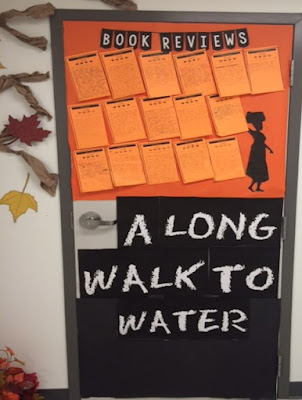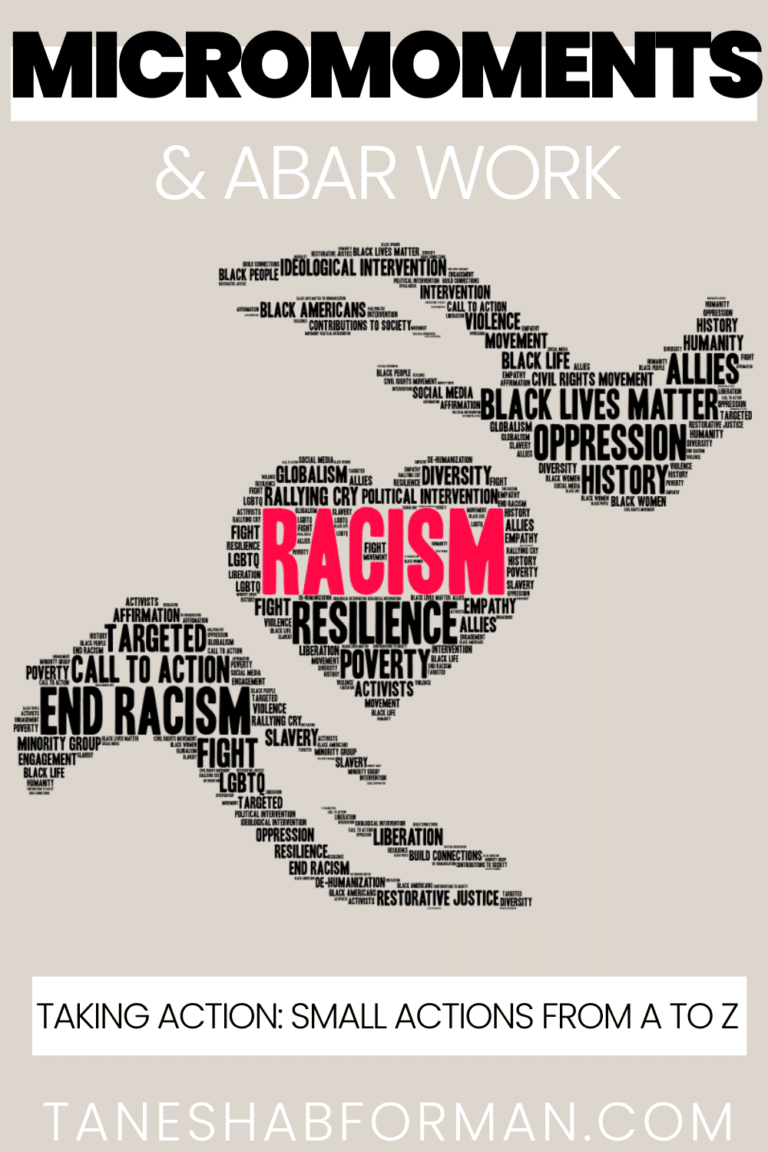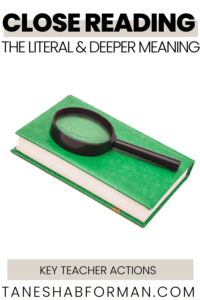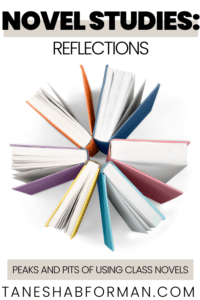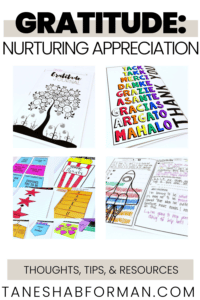
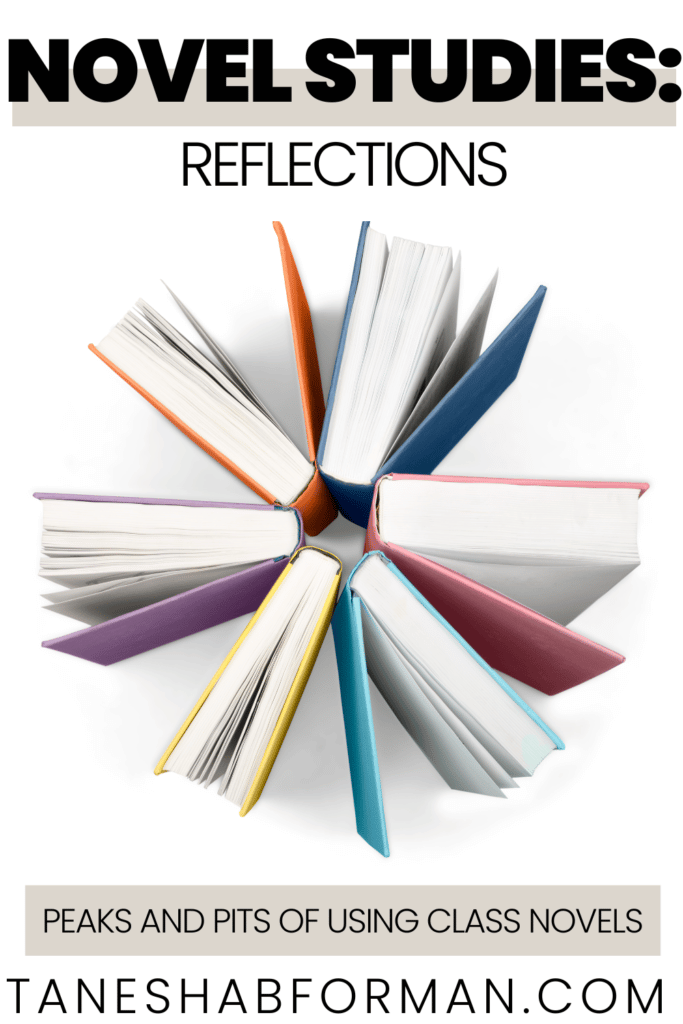
Novel Studies: Peaks and Pitfalls
As a reading teacher and avid reader, my passion is sharing and spreading my love of reading to my students. Easier said than done. Prioritizing time to read, matching students with a book and/or author that they connect with, and developing a classroom library that is ever growing and intriguing is a full time job! Not to mention ensuring that students are becoming better readers, and end of year assessments. I usually ignore the latter. On this journey I’ve swung back and forth on using novels, and think I’ve landed in a place that drives towards my bottom line as a reading teacher; getting students to LOVE reading! Below is a collection of lessons learned (for better or worse) while using novels. I can’t move forward without stating that I don’t exclusively use novels in my classroom (#beentheredonethat), and I fundamentally believe that the best way for students to become better readers is to read what they are interested in …. A LOT!
PIT. Student choice and reading levels are always top of mind when selecting a novel. There is no sure fire way to choose a novel that will engage each learner, however, knowing the novel, and why it matters is key to overcoming the pitfall of student choice, and engaging as many students as possible. I recently used the book A Long Walk to Water with my class. It was in our class library, but not one student had read it! One strategy to overcome this pit is to build energy around the book. Get students hype about it by giving them a few “bread crumbs” on what excites you about the book. To add this energy, I sent out a letter to parents/guardians, decorated my door to look like the book cover, and used the program Learning Ally to ensure that my students reading below the level of the book were set up for success.
 |
| Each student receives the book in a bag with their name one it, numbered book, parent letter, and minibook. |

PIT. Nothing drains a novel study quite like a teacher squeezing EVERY DROP of EVERY DETAIL from a book. It sounds bad right? But it’s honest! When reading with students I tell them ahead of time which chapters to read, and when they come to class we discuss what they’ve read, but move on to our focus for the day. I used to want to experience every point with my students, but I realize this drags the novel on, and doesn’t build the habit of reading independently and coming prepared to talk about the book. More importantly, I feel like I lose momentum (and time) by spending too much time on one book.
PEAK. This connects accountability because while we don’t read everything together, we do have class discussions, and these tell me who is and isn’t caught up. Beyond that, students L.O.V.E sharing their personal opinions and deep diving into all their favorite parts. We use a Socratic Seminar format, which allows students to think broadly about how the text connects to their lives, and also find specific places in the text where we see shifts in the plot. I teach 5th graders, and seminar is something they love, but are still learning how to make connections, respectfully disagree, and move the conversation ahead. That said, it’s SUPER engaging! Students are required to come to the conversation prepared to engage, and during seminar they take notes for a paper they will write.
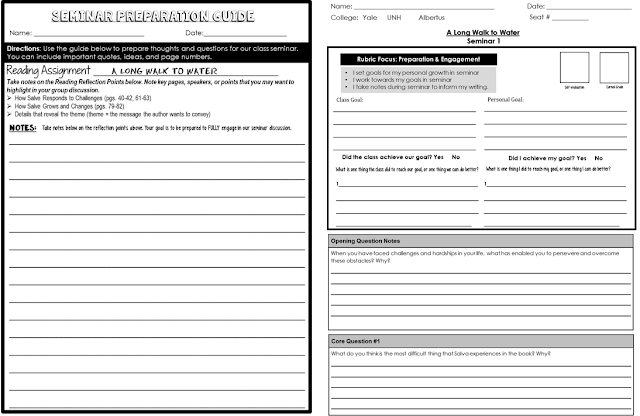 |
| Sample Discussion Guide and Note Tool During Seminar BELOW IS A SMALL PEAK FROM A DISCUSSION |
PIT. This is a biggy that I have to remind myself about ALL.OF.THE.TIME! I have to fight the urge to use the novel to teach and do all things. You know, summarize the chapter, determine the main idea, compare two characters, evaluate character relationships, determine the theme, review character motivation, analyze the impact of the setting, determine the author’s purpose… on and on and on! When choosing a novel, I think about the synergy with the standards I am teaching, but that is not the sole focus. Additionally, I’ve found that trying to use the novel to teach everything is overwhelming, and not aligned to the reason I teach reading. I want students to use the reading strategies authentically, and teach concepts when appropriate and natural.
PEAK! Last, but not least, students remember the novels we use in class forever. Well, maybe not forever, but for a long time. I won’t even try to count the number of times I’ve heard a student recall character actions, or connect a theme to another text! Students complete a book review and get to talk with peers who had wildly different opinions about the book. I read all their reviews to decide if it’s a keeper! The shared experience and the ability to refer back to the novel during class is an invaluable advantage to using them!
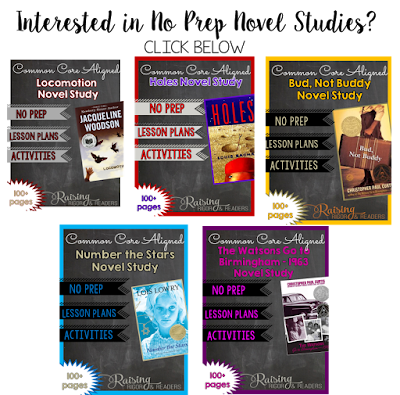 |
| Click Here |

PIN FOR LATER!
JOIN THE COLLECTIVE
Sign up and access the FREE resources to support your Anti-Bias/Anti-Racism journey.

Tanesha B. Forman
I'm a current middle school administrator who loves breaking down complex topics and providing opportunities for educators learn, reflect, practice, and implement methods that foster equity and anti-racism. I believe we win together!
Behind the Blog


Hi, I'm Tanesha.
I’m a current middle school administrator who loves breaking down complex topics and providing opportunities for educators learn, reflect, practice, and implement methods that foster equity and anti-racism. I believe we win together!








